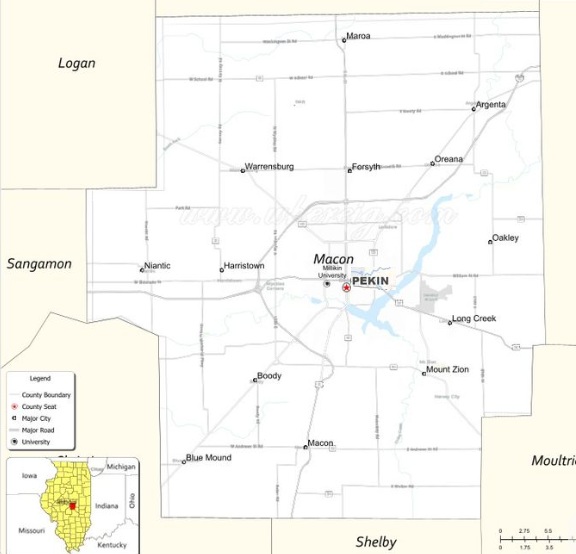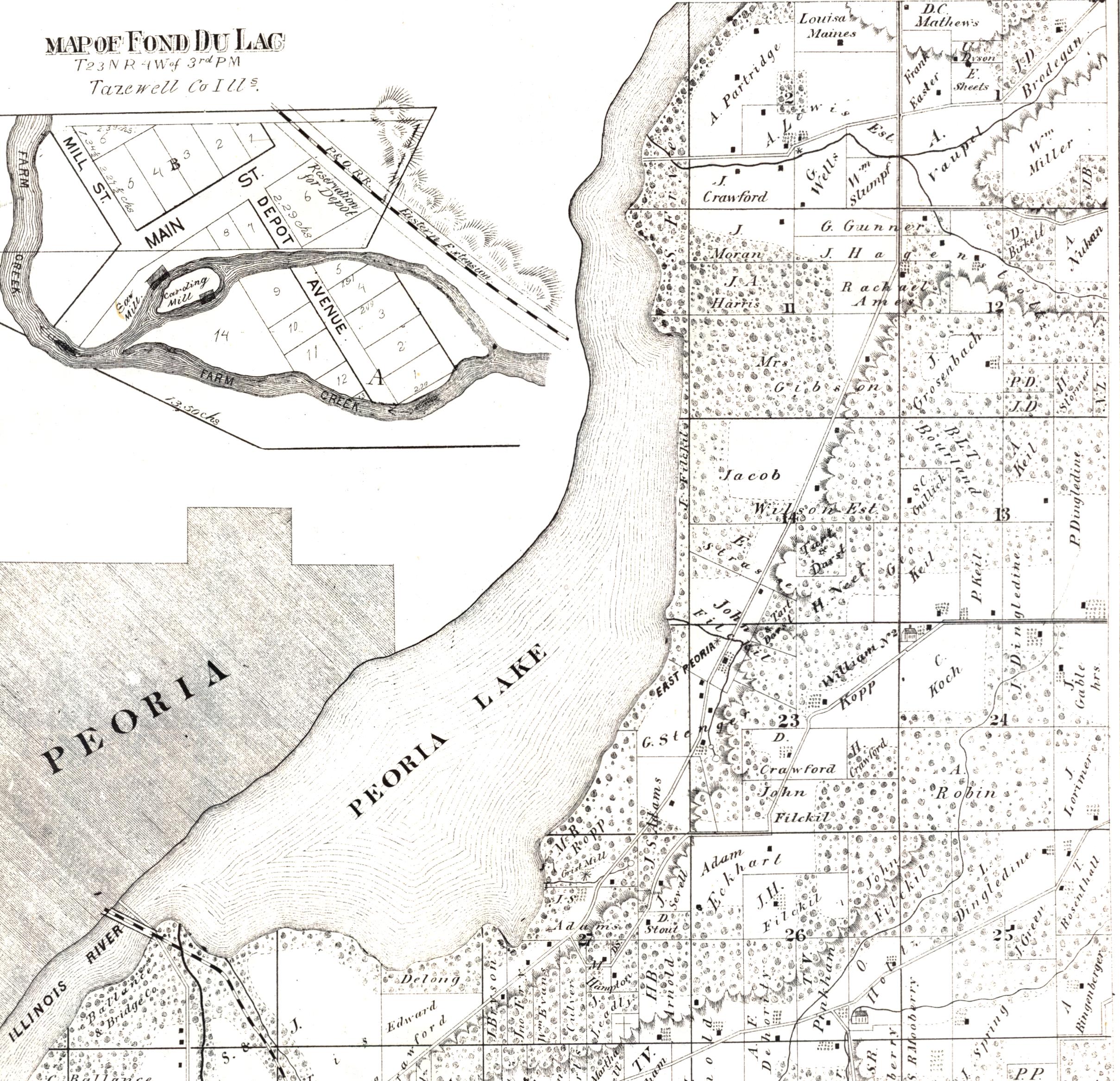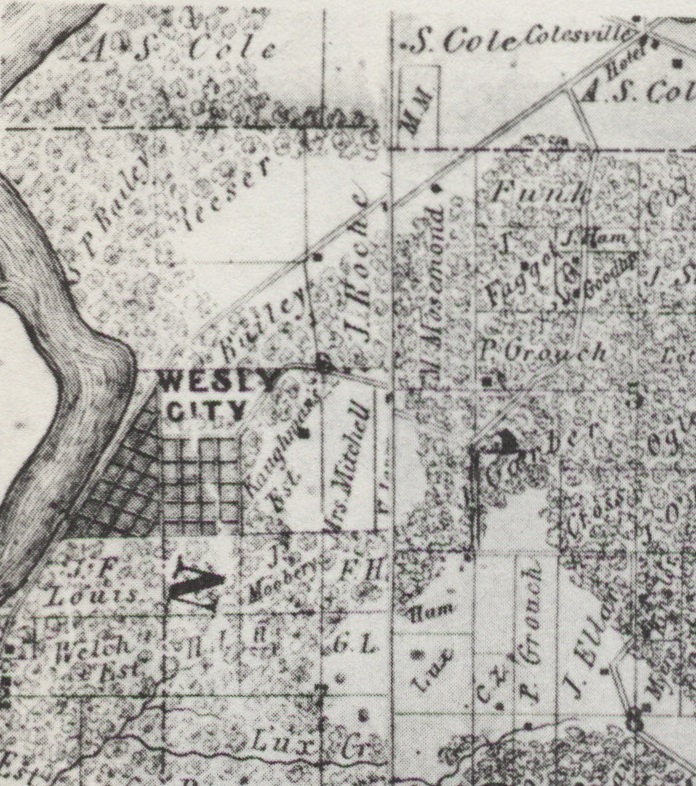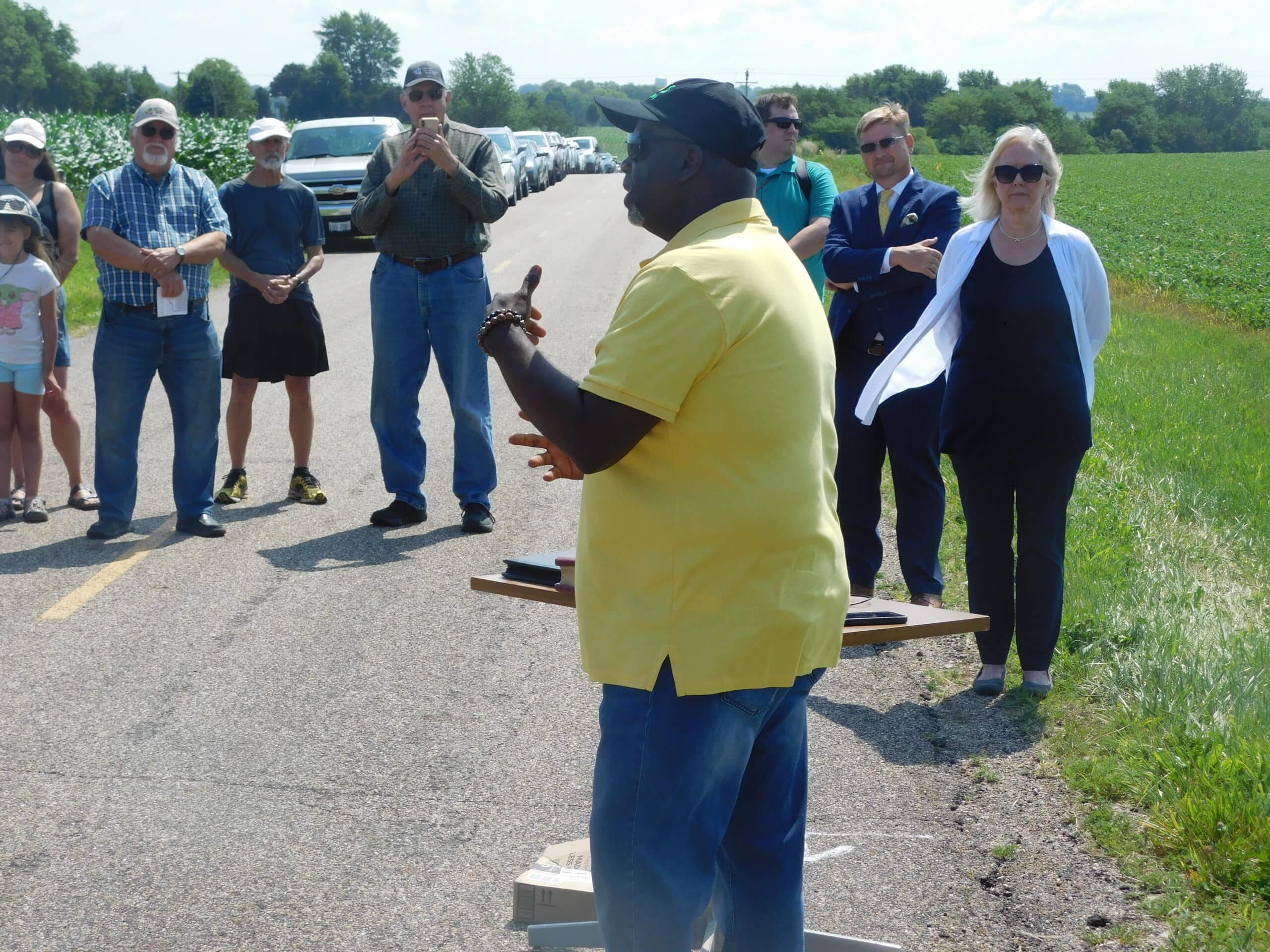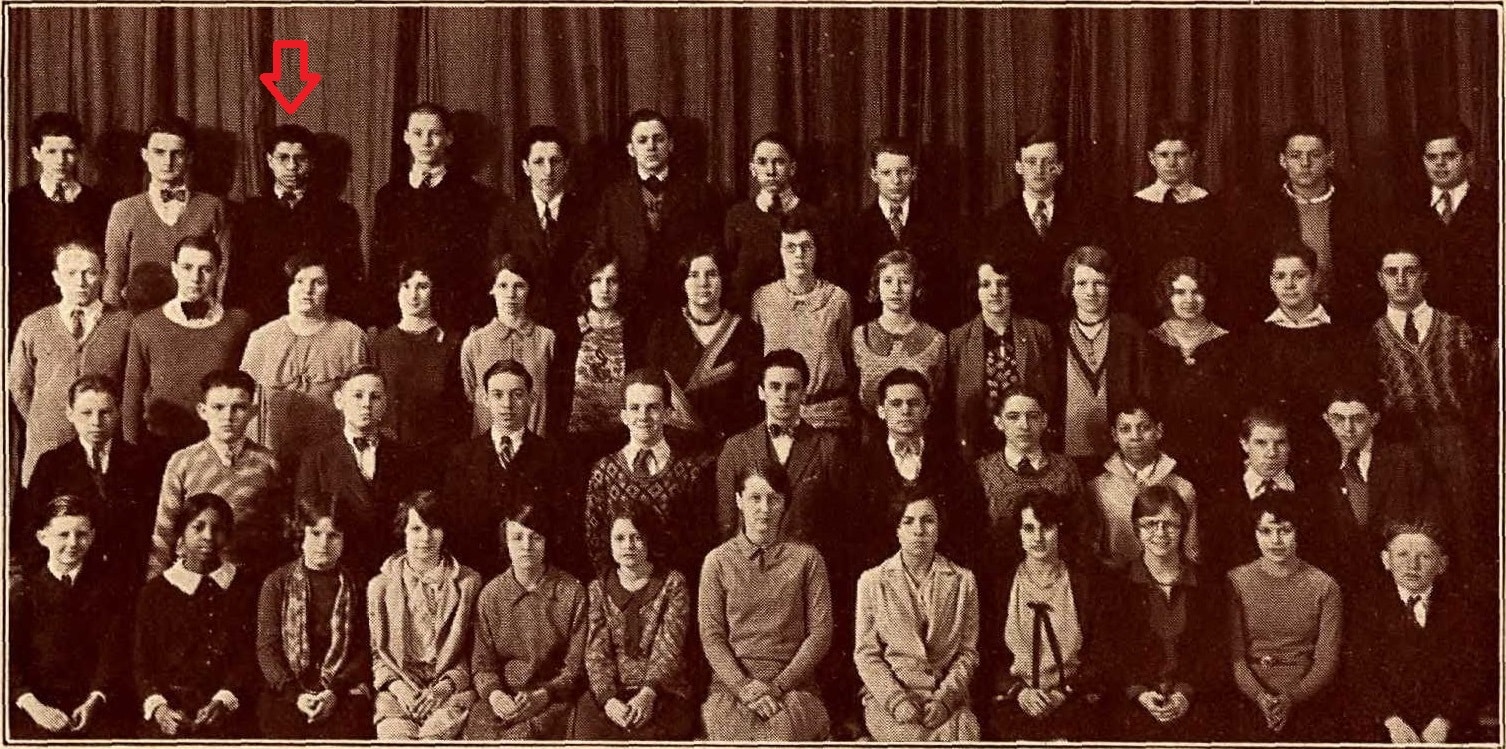The metropolitan areas and larger cities of the U.S. naturally serve as the nation’s cultural centers. These are the kinds of places that can support a philharmonic orchestra, and that are always included on the itineraries of musical groups when they plan concert tours.
Smaller cities, however, or towns lacking a suitable venue for a concert, or that are unlikely to draw a sufficient audience to make a concert stop worthwhile, tend to get overlooked. Pekin is one of those cities. Pekin has never had its own philharmonic, but we do boast the Pekin Park Concert Band (successor of the Pekin Municipal Band) that presents summer concerts in Mineral Springs Park on Sundays. Further in the past, Pekinites were also entertained by Gehrig’s Band, and Pekin’s local theaters also regularly staged plays and hosted vaudeville acts.
For about seven decades, popular bands and singers and classical performers were also brought here by the Pekin Concert Association, which until it disbanded recently would book and finance an annual concert series. The decision to disband, according to former PCA member George Beres, was regrettably made due not only to declining membership but to difficulty in securing a suitable venue. In the past concerts would be presented in the Pekin Community High School theater – originally in the former West Campus, later in East Campus’ F. M. Peterson Theater. Within the past decade, though, reserving the PCHS theater became impractical, since acts had to be secured well in advance. In its final seasons the PCA sometimes hosted concerts at a local church.
PCA records kindly supplied to the Pekin Public Library by George Beres listed all of the musical acts in every concert series from the 1948-49 series until the 2006-07 series. The acts’ names, however, are usually abbreviated and not always easy to interpret for those not familiar with popular serious musicians of the past.
Thus, the records show that the first Pekin Concert Association concert series in 1948-49 featured “Templeton, Lloyd, Dilling, Col. Operatic Trio.” A notation on the record indicates that “Dilling” was Mildred Dilling (1894-1982), a renowned harpist. “Templeton” is probably the pianist and composer Alec Templeton (1909-1963), while “Lloyd” is possibly the British composer George Lloyd (1913-1998). “Col. Operatic Trio” refers to the Columbia Operatic Trio, whose members varied over the years.
Subsequent PCA concert series brought such musical performers to Pekin as the Tucson Arizona Boys Choir, the Angelaires, David Bar-Ilan, The DeCormier Folk Singers, Guy Lombardo, The New Christy Minstrels, Serendipity Singers, The Four Freshmen, Chanticleer, The Tommy Dorsey Orchestra, The Brothers Four, and The Cornet Chop Suey Jazz Band. Several of the artists and groups made more than one return visit to Pekin courtesy of the Pekin Concert Association.
One of those musical groups that came to Pekin more than once during the PCA’s early concert series was the de Paur Infantry Chorus, an all-male, all-African-American choral group that was organized and conducted by Leonard E. de Paur (1914-1998), a gifted conductor and composer who founded the Lincoln Center Out of Doors programs in New York City. While serving in the U.S. Army infantry in World War II, de Paur was assigned to an all-male chorus – that experience led to de Paur’s founding the de Paur Infantry Chorus after the war. The chorus’ members initially were 35 men from the Army’s 372nd Glee Club, though later on men from other branches of the Armed Services and even civilians were included. The chorus performed a repertory of art songs, military songs, Caribbean folk music and traditional spirituals. Signing with Columbia Records in 1946, the chorus soon began a 10-year reign as Columbia’s top-performing group. Following that success, de Paur decided to discontinue the chorus in 1957, producing the de Paur Opera Gala in its place. In the early 1960s, however, de Paur formed the de Paur Chorus, which toured worldwide until it was disbanded in 1968.
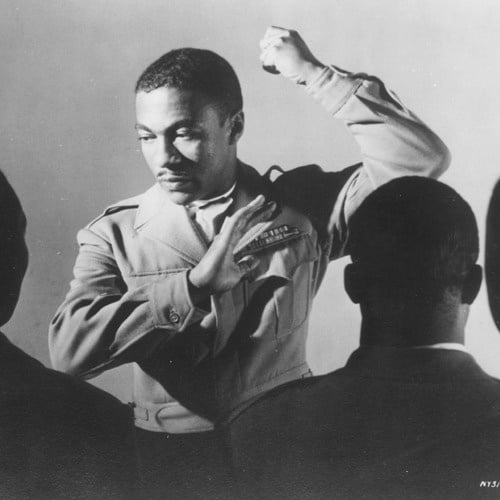
Leonard de Paur brought his Infantry Chorus to Pekin twice – first during the PCA’s 1950-51 concert series, and again during the 1952-53 concert series. The de Paur Chorus also performed in Pekin during the PCA’s 1963-64 concert series. George Beres attended their concerts here and says they put on an extremely good show.
A number of fascinating and enlightening anecdotes of the de Paur Infantry Chorus’ visits to Pekin in 1950 and 1952-3 may be gleaned from an article from the Winter 1954 issue of “Etc.: A Review of General Semantics” (Vol. XI, No. 2, pages 144-147), a copy of which may be found in the archives of the Pekin Public Library’s Local History Room. The article, entitled “Educating the Pekinese” and written by Clotye Murdock, associate editor of Ebony magazine, sheds a revealing and edifying light on the racial attitudes of the residents of the then-all-white city of Pekin. Included in Murdock’s article are the following excerpts from a letter by Leonard de Paur in which he sketched the chorus’ visits:
“We have a date coming up which suggests an interesting angle in the area of race relations. It involves a town highlighted by Life magazine about a year ago as a center of gambling and assorted other shocking vices. The town is Pekin, Illinois (near Peoria), where there is no discernible Negro population. Pekin has no decent hotel, and it is around this lack that the story revolves. We first performed in Pekin during 1950. In the routine booking of hotel accommodations it became evident that we would have to stay in Peoria, where we were housed at the Marquette Hotel when we earlier gave a concert for Bradley University. As a matter of general information, we advised the concert committee in Pekin of our plan to hotel in Peoria . . .
“Shortly thereafter, we received an invitation from the committee to stay in Pekin as house guests of some of the town’s leading citizens. We wanted to decline at first, because the routine of the road is designed for hotel living. We avoid house-guesting, because of the headaches involved in dispersal and collection, so we tried a gentle demurrer. They persisted, and assured me that all we need to do would be to arrive in the town. They would take over from that point. And they did just that.
“Our bus pulled up to the site of the concert to find a fleet of cabs ready to taxi us to our respective homes. A leading lawyer [Note: this was Grace United Methodist Church member Bernard F. Hoffman, 1912-1972, a founding member of the Pekin Concert Association who for most of his life was one of Pekin’s most active community leaders] had organized things and hovered by making sure things moved on schedule. Supper found us the guests of the Methodist Men’s Club. The post-concert reception was held at the YWCA. Next morning, it developed we were truly ‘guests’ – our money was absolutely no good, breakfast, lunch, and the like for 34 men notwithstanding. Along the streets we were lionized to the hilt, so much so that my curiosity boiled over. This was too good, too organized. I sought the answers.
“They were simple and enlightening. Peoria has had, as you know, its racial difficulties (schools, restaurants, etc.), and Pekin had them in even more virulent fashion. There was an organized effort made, some years ago, to keep Negroes out of Pekin, and the one family which dared move to the town finally gave up and fled. There have been no Negro residents since that time.
“But God bless ’em, there are people of conscience in Pekin, and this racial ‘void’ had obviously troubled them. Our appearance proved to be an opportunity for them to use our visit as a ‘demonstration of democracy’ project. I also suspect they wanted to see some colored folk close-up.
“The result was that this year when we were asked to return to Pekin, housing needs were oversubscribed. And the people involved are the ‘leadership’ element in the town – the thinking and acting and policy-forming group. As a symptom of what may well be an ever-widening turn of mind, I find it heartening . . . .”
The de Paur Infantry Chorus’ experiences of Pekin serve to illustrate what popular singer Billy Joel once said about some of the most beneficial qualities of music: “I think music in itself is healing. It’s an explosive expression of humanity. It’s something we are all touched by. No matter what culture we’re from, everyone loves music.”



